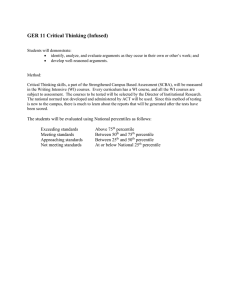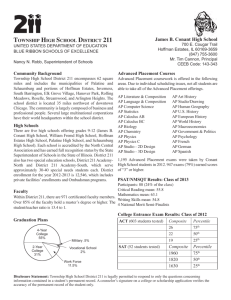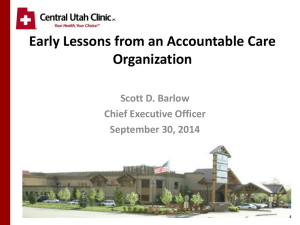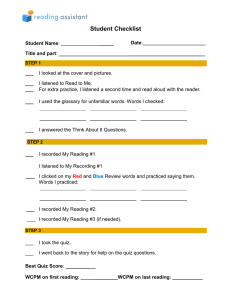Oral Reading Fluency Norms Grades 1-6
advertisement
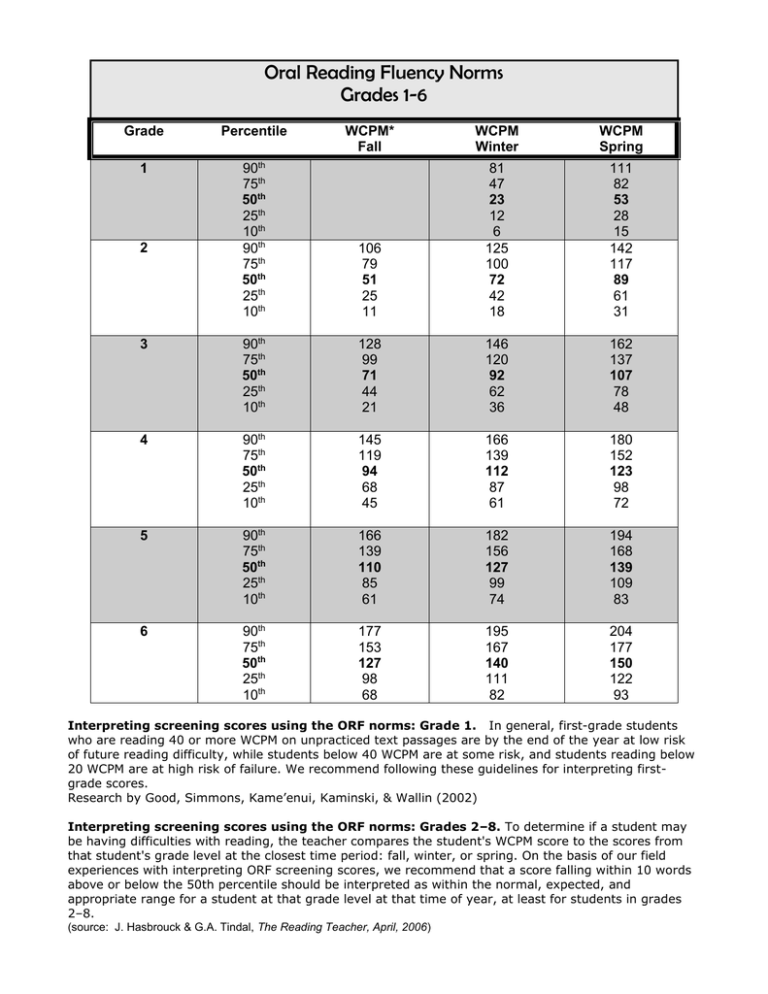
Oral Reading Fluency Norms Grades 1-6 Grade Percentile WCPM* Fall WCPM Winter WCPM Spring 1 90th 75th 50th 25th 10th 90th 75th 50th 25th 10th 106 79 51 25 11 81 47 23 12 6 125 100 72 42 18 111 82 53 28 15 142 117 89 61 31 3 90th 75th 50th 25th 10th 128 99 71 44 21 146 120 92 62 36 162 137 107 78 48 4 90th 75th 50th 25th 10th 145 119 94 68 45 166 139 112 87 61 180 152 123 98 72 5 90th 75th 50th 25th 10th 166 139 110 85 61 182 156 127 99 74 194 168 139 109 83 6 90th 75th 50th 25th 10th 177 153 127 98 68 195 167 140 111 82 204 177 150 122 93 2 Interpreting screening scores using the ORF norms: Grade 1. In general, first-grade students who are reading 40 or more WCPM on unpracticed text passages are by the end of the year at low risk of future reading difficulty, while students below 40 WCPM are at some risk, and students reading below 20 WCPM are at high risk of failure. We recommend following these guidelines for interpreting firstgrade scores. Research by Good, Simmons, Kame’enui, Kaminski, & Wallin (2002) Interpreting screening scores using the ORF norms: Grades 2–8. To determine if a student may be having difficulties with reading, the teacher compares the student's WCPM score to the scores from that student's grade level at the closest time period: fall, winter, or spring. On the basis of our field experiences with interpreting ORF screening scores, we recommend that a score falling within 10 words above or below the 50th percentile should be interpreted as within the normal, expected, and appropriate range for a student at that grade level at that time of year, at least for students in grades 2–8. (source: J. Hasbrouck & G.A. Tindal, The Reading Teacher, April, 2006)
